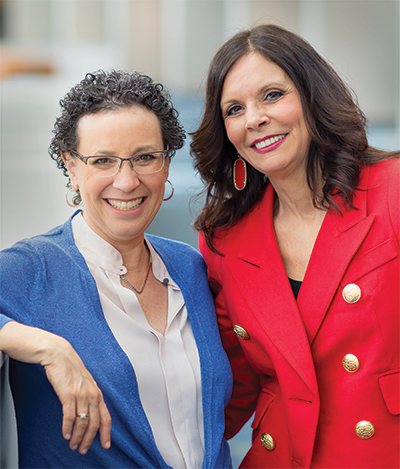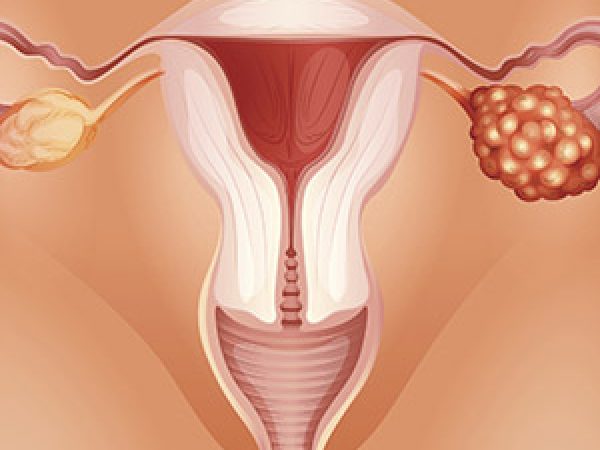Honoring the Life of an Advocate
In the fall issue, Cancer Today had the honor of highlighting two women whose cancer diagnoses led them to form a powerful partnership. AnneMarie Ciccarella and Lori Marx-Rubiner met each other after attending a weekly Twitter chat under the social media hashtag #BCSM (for Breast Cancer Social Media). They formed an unbreakable bond that challenged them both—and ultimately affected many researchers.
While the magazine was in production, Marx-Rubiner, whose cancer had metastasized in 2011, died from her disease. At the two friends’ request, Cancer Today published the story about their relationship as it was originally written. The story stands as a written testament to Marx-Rubiner’s life.
Marx-Rubiner’s story exemplifies the power of advocates, both those who came before and those who will inevitably come after.
The American Association for Cancer Research (AACR) came to know Marx-Rubiner in 2014 after she was selected to participate in the AACR’s Scientist↔Survivor program (SSP), which brings survivor advocates together with cancer researchers during the AACR’s Annual Meeting. This opportunity became a chance for Marx-Rubiner to do what she did best: build relationships—most notably making friends with PhDs.
“I remember her absolute enthusiasm and thirst for knowledge and wanting to understand,” says Aime Franco, PhD, who served as Marx-Rubiner’s scientist mentor during SSP in 2014. Last December, Marx-Rubiner invited Franco to the Dr. Susan Love Research Foundation’s Metastatic Breast Cancer Collateral Damage Project, a two-day program that brought health care providers and metastatic breast cancer patients together to discuss the unique challenges metastatic breast cancer patients face.
Franco, a thyroid cancer survivor who studies thyroid cancer at the University of Arkansas for Medical Sciences (UAMS) Winthrop P. Rockefeller Cancer Institute in Little Rock, listened to patients as they detailed how metastatic breast cancer, a complex and incurable disease, touched every aspect of their lives.
Still, the survivors at the conference weren’t looking for a cure exactly, Franco recalls. Instead, they wanted assurance that there would be another drug to try when they had gone through all the others. This request broke down the problem of metastatic cancer into smaller steps.
“We [researchers] only were thinking about ways for a cure, but maybe killing all the tumor cells isn’t the metric that we should be using. Getting them to re-differentiate and act more like normal cells so they don’t cause death may be a better metric. This whole idea of cancer becoming more of a chronic condition changes the questions you ask and the solutions that you’re looking for. That would have never come about without patient input and patient perspective,” she says.
This patient perspective is invaluable in the life of a researcher, says chemical engineer Jerry S.H. Lee, who serves as the Health Sciences Director within the National Cancer Institute’s Office of the Director. Lee met Marx-Rubiner through SSP, though he was not her mentor. He served as the Deputy Director for Cancer Research and Technology for the White House Cancer Moonshot Task Force under then-Vice President Joe Biden in 2016. He recalls challenging physicist Peter Kuhn, PhD, director of the Kuhn Lab of the University of Southern California in Los Angeles, to come up with a brand new idea to submit to the Cancer Moonshot panel in 100 days.
Kuhn, who also was also a scientist mentor at SSP, enlisted the help of Ciccarella and Marx-Rubiner to launch CancerBase, a project of the Convergence Science Initiative-Cancer (CSI) at the University of Southern California in Los Angeles. The project allows patients to share their cancer experiences so data is available to all patients.
“From my perspective, without Lori and without AnneMarie’s help—AnneMarie with the enthusiasm, Lori with the grounding—I don’t think Peter would’ve been able to put together such a cohesive concept for CancerBase. It is the only new program included in the Cancer Moonshot to my knowledge that was by patients and for patients to broadly share their data with each other,” says Lee. “It really is a testament to their persistence, and how dedicated the two of them, and the other patient advocates who helped, were.”
Before she died, Marx-Rubiner continued to ask questions and to push. “Even up until a month before Lori passed, we were exchanging emails and she wrote, ‘I miss you too but I keep thinking about your mouse models and some of the challenges that we can ask and questions that we can answer with the mice,’” says Franco. “That really embodies what Lori stood for. I mean, even as she was facing what she knew would be the end, she was still trying to add that input.”
About a week after Marx-Rubiner’s death, researchers met to review more proposals through the Department of Defense Breast Cancer Review Panel. Ciccarella, who was now a reviewer thanks in part to Marx-Rubiner’s endorsement, had to miss the meeting to attend her friend’s funeral. On her trip to California, Ciccarella got an email from a researcher to give her an update.
The researcher didn’t know Marx-Rubiner, but she wrote how everyone stopped for a deferential moment of silence to honor the life of Ciccarella’s friend. The researchers and patient panelists then continued to review more proposals—as their work was far from done.
Marx-Rubiner and Ciccarella were interviewed at the AACR Annual Meeting 2017 in Washington, D.C. Here’s a look at the conversation:
https://www.youtube.com/watch?v=zdBulKAdhHI
Editor’s note: The American Association for Cancer Research (AACR) fosters collaboration among scientists—as well as education for patient advocates. In December, the AACR will again be teaming with the San Antonio Breast Cancer Symposium to feature the latest science in breast cancer research, and will be co-hosting a special education session for advocates. In addition, the AACR’s Scientist↔Survivor program, held each year during the AACR Annual Meeting, is accepting applications from survivor and patient advocates through Dec. 5.




